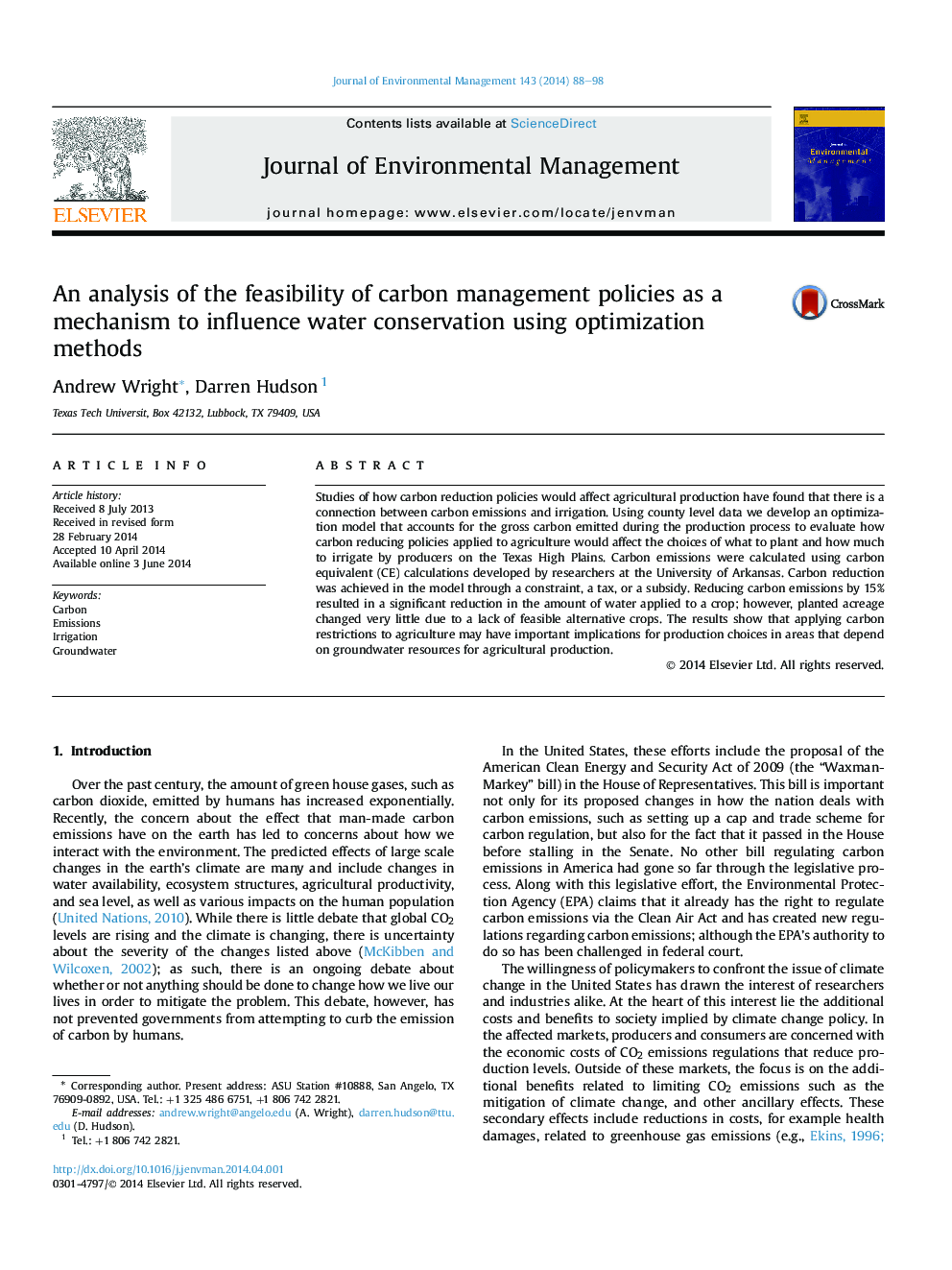| Article ID | Journal | Published Year | Pages | File Type |
|---|---|---|---|---|
| 1055757 | Journal of Environmental Management | 2014 | 11 Pages |
Abstract
Studies of how carbon reduction policies would affect agricultural production have found that there is a connection between carbon emissions and irrigation. Using county level data we develop an optimization model that accounts for the gross carbon emitted during the production process to evaluate how carbon reducing policies applied to agriculture would affect the choices of what to plant and how much to irrigate by producers on the Texas High Plains. Carbon emissions were calculated using carbon equivalent (CE) calculations developed by researchers at the University of Arkansas. Carbon reduction was achieved in the model through a constraint, a tax, or a subsidy. Reducing carbon emissions by 15% resulted in a significant reduction in the amount of water applied to a crop; however, planted acreage changed very little due to a lack of feasible alternative crops. The results show that applying carbon restrictions to agriculture may have important implications for production choices in areas that depend on groundwater resources for agricultural production.
Keywords
Related Topics
Physical Sciences and Engineering
Energy
Renewable Energy, Sustainability and the Environment
Authors
Andrew Wright, Darren Hudson,
